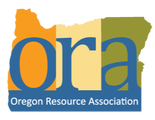Oregon Forward FAQs (formerly QRF program)
|
What are the reasons to do business with a Oregon Forward Contractor (OFC)?
As a purchasing agent or buyer for a taxpayer-supported political subdivision, such as a city, county, school district, or an agency of the state of Oregon, there are several reasons to do business with an OFC: It is the right thing to do. People who work at OFC businesses need your help; jobs depend on business orders. There are thousands of Oregonians who are out of work because of a disability. As a public purchasing agent, you can make a difference. Your cooperation and willingness to buy goods and services from OFC businesses puts people with disabilities to work. It is the smart thing to do. Oregonians with a disability who earn a wage require less taxpayer money. Your participation makes a difference to all Oregon taxpayers. It puts you in the driver’s seat. A negotiated contract process can allow you to tailor specifications to get exactly the product/service or performance you want. The long-term relationship with a OFC makes contract renewals a breeze. It also reduces the time to establish a contract. It is the necessary thing to do. In 1977, the Oregon legislature passed the “Products and Services of Individuals with Disabilities” act. This law obliges all state and local governments, school districts, and other tax-supported political bodies in Oregon to purchase goods and services from OFCs when the product or service is listed on the DAS Procurement List and meets the agency’s requirements. The details of this act are contained in Chapter 279.835-855 of the Oregon Revised Statutes (ORS 279). This Chapter spells out to all tax-supported state and local agencies how they are to spend the taxpayers’ money on needed goods and services. When should you do business with a OFC? Anytime you plan to make a purchase of the types of goods or services listed in the DAS Directory of Oregon Forward Contractors (Procurement List), you are obliged to procure it from the listed OFC if it meets your specifications and is available when you need to have it. Why doesn’t an OFC have to compete with other businesses for Government Contracts? Taxpayer-supported state and local political subdivisions do business with OFCs on a non-competitive basis. This means a OFC is not required to bid for your purchases in competition with for-profit contractors. Some of the reasons for this special treatment of OFC business enterprises are: OFCs are non-profit enterprises. They have a mission to provide employment services to community members who have a disability. OFCs provide special employment support to people with disabilities that cost time and money. Workers with disabilities require accommodations such as special training and job modifications that go far beyond what a commercial business could be required to provide. The investment in the worker with a disability is high, but in terms of public benefit it is returned many times over when long-term employment can be provided. Stable employment is critical to the success of these programs. OFC businesses are self-supporting. Their prices for goods and services have to recover all the costs necessary to train, equip and supervise their workers. They are required by law to pay the prevailing wage in their area for the type and quality of work being done. Plus, the OFC pays for liability and workers compensation insurance, and all the other overhead expenses any business has. The purpose of the state “Products and Services of Individuals with Disabilities” law is to encourage and assist people with disabilities to work, and to achieve gainful employment. Employment enhances the ability to be as self-supporting as they can be. They will be less dependent on welfare and costly institutionalization. What is the process for contract renewal with a OFC? Here are a few points to consider when preparing for the renewal process: Plan your annual renewal process well in advance of the ending date of the contract period. For a large custodial contract, for example, three or four months is not too early to start working with the OFC on the renewal process. Revise and update your specifications to show any changes made during the contract period. At renewal, the OFC will review its pricing structure, which is to your advantage. Often, they are able to work with the agency to cut prices or costs as they gain experience with you and understand the fine points of the work to be performed. A quality service or product can potentially be provided to your agency for many years to come, resulting in long-term benefits for Oregonians with disabilities and taxpayers alike. Remember that DAS must approve any price changes in the renewal process. |
How to get started?
Once you have established the need to procure a product or service go to the Procurement List, published on the DAS website, to see if the product or service is provided by a OFC. If there is a OFC on the Procurement List, contact the OFC to see if they can meet your specifications and delivery timelines. If they are able to meet your specifications and timelines you may begin negotiating a contract with them. When looking to procure a product, ask the OFC representative to provide you with samples so you can make sure the products are right for you. Talk with the OFC representative if you need some minor adjustment or changes to suit your particular use of the product. You will find that OFCs have a can-do attitude and are eager to meet your needs. When looking to procure a service you may find more than one OFC available. Contact as many of those OFCs as you wish. Inquire which OFC is interested in servicing your needs. Invite those interested OFCs to meet with you and tour your facility. Provide them with your specification draft. You may narrow down your candidates through references, training they provide their employees, and/or by an interview process with the OFC representatives. Price may be used to determine your choice but the final price is determined by DAS. If no source is located on the Procurement List for your specific needs, you may move forward with your agency’s procurement process. How to negotiate the deal? If you are purchasing a product, such as plastic bags or blankets, and you are an ORCPP member you may simply make your purchase from the DAS Price Agreement. Nothing could be simpler. If you are purchasing a product or service from a OFC and DAS does not have an established contract for that product or service you may work directly with the OFC to negotiate your own contract. DAS must determine the price of that contract before the contract is initiated. If the initial price exceeds your budget estimate, let the OFC know and give them a chance to work through the numbers with you a second time. There could be a misunderstanding about your requirements or a mistake somewhere in the figures. It could be that your specifications exceed your budget. make the deal. When the price submitted by the OFC meets the agency’s budget the OFC and the Agency may submit that price to DAS on an approved form for final determination. Sometimes, after both sides have negotiated in good faith, the deal just won’t work. Usually, it will be price or specification that will get in the way. As the public purchasing agent, you should know what the limits of the program budget or specification tolerance will be. The OFC can drop the project or perhaps try again later. There have been cases where the agency was able to split up the work into smaller pieces in order to have partial OFC participation. The point here is to act in good faith towards the OFC. Be open and fair in your dealings with them. OFCs are looking for long-term business partnerships, not advantages. How to deal with quality assurance and performance problems? One of the biggest advantages of doing business with a OFC is that it is a relationship, not just a one-time competitive bidding arrangement. OFC businesses are there to provide permanent jobs for Oregonians with disabilities, not to make money by cutting corners. They have a different outlook on your business than the commercial sector. They are in for the long haul. You should expect quality services and products. As a purchasing agent, you have the capability to make your agency’s OFC contract successful. It just takes communication and cooperation. Talk to your OFC counterpart. Make sure your program people are introduced to the OFC representative and that everyone involved in the contract administration process knows what’s expected of them. For example, if you have an OFC doing custodial services, plan a joint walk-through on a weekly basis from the beginning of the contract. Spend time talking about performance expectations at the beginning of your relationship and you will each get to know and understand the other. As your contract relationship settles into a routine, you can cut down on the frequency with which you meet with the Oregon Forward Contractor. But still plan on regular meetings with the OFC representative to talk about their performance and to make adjustments in the contract as needed. Together, write down any changes you and the OFC agree to make. Amend your contract to reflect the mutually agreed upon changes. This bit of routine “housekeeping” will keep your mutual understanding of what’s to be done fresh and current. If a problem does surface, however, you must tell the OFC management immediately. Don’t wait, hoping things will get better. They can’t fix the problem if they don’t know about it. If you have taken the time to get to know each other at the start of the contract, any issue will be easier to solve. Again, document any needed changes or complaints and share them with the OFC. Remember the old adage is true; take care of the little things before they get to be big things! If, after making these efforts, you cannot resolve your problems, remember that you have authority to terminate the contract just as you would with any commercial business. If there seems to be no other way, talk candidly with the OFC about termination. It may be in the best interests of everyone involved. |

